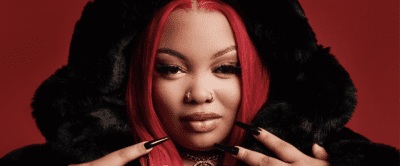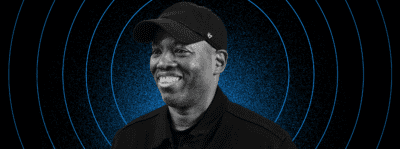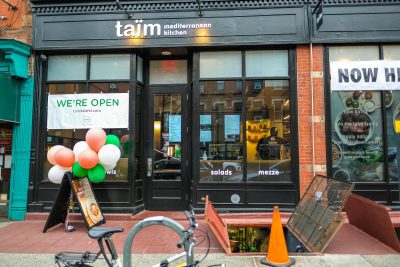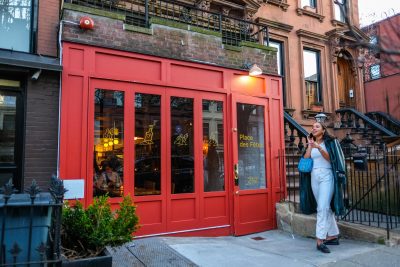Photo illustration by Johansen Peralta
The torch song of Harvey Fierstein
The actor, playwright and screenwriter discusses his delightful new memoir, 'I Was Better Last Night,' on the podcast this week
Like what you’re hearing? Subscribe to us at iTunes, check us out on Spotify and hear us on Google, Amazon, Stitcher and TuneIn. This is our RSS feed. Tell a friend!
Harvey Fierstein was better last night. But don’t take our word for it: He’ll be the first to tell you himself. His new memoir, “I Was Better Last Night,” out this week, is as wry and smart and sassy and self-aware as that title. Weren’t we all better last night? Weren’t we all younger last night?
Of course, with the possible exception of Harvey Fierstein, none of us were Harvey Fierstein last night. Which is what makes his memoir such a delight to read. Beginning with his childhood in Bensonhurst, the actor, playwright and screenwriter recounts his story in a pastiche of anecdotes that veer from heartfelt to knee-slapping. And this week, Fierstein is our guest on “Brooklyn Magazine: The Podcast.”
“Life is as good and as interesting as the times you say yes to it,” Fierstein tells me about his head-spinningly eventful existence. “Because when you say no, your life doesn’t change. When you say no, you just keep going along. If you say yes, it doesn’t mean it’s going to get better, but it could. But it will definitely change.”
Fierstein first became known for his theater work on and off—and off off, and off off off—Broadway. His breakthrough triumph came early, when he wrote and starred in “Torch Song Trilogy,” a series of set pieces that originated at the underground institution La MaMa and ultimately became a Tony Award-winning juggernaut. The three plays center around a Jewish drag queen and torch singer who lives in New York City in the late ’70s and early 1980s. It broke original ground in the way gay men were portrayed—humanizing them and addressing issues like gay marriage and adoption before literally anyone else was talking about them.
“When I wrote ‘Torch Song’ I was attacked greatly by a certain faction of the gay community, saying ‘He’s trying to turn us into heterosexuals! I don’t want to have children. I don’t want all that, blech!’ We all grew up in the same homes, we had the same parents. Why wouldn’t we have some of the same social goals as well? It makes perfect sense to me,” Fierstein says on the podcast. “If a heterosexual has the right to do it. As a tax paying citizen, I have a right to do it.”
Our conversation starts where Fierstein starts: In post-war Brooklyn. “We lived in a very insular world when you’re in Bensonhurst. The Jews felt they owned it. The Italians felt they owned it. The Greeks felt they owned it,” he says. “I grew up on a very Jew-centric block. I had the JCH on one corner and the Yeshiva of Bensonhurst on the other. The rabbi and his wife walked past a few times a day. You had to behave.”
He knew he was different from an early age—”I was doing drag at 6!” he says—but in the 1950s there was nobody he could talk to about those feelings. He wondered if he was a meant to be a girl. Add to the mix dyslexia and a sky high I.Q., and a distinctive rasp that comes from overdeveloped secondary vocal cords, and you have the basic ingredients for a wild meal of a life.
“All children grow up, they ask themselves questions, they look out at the world. They look at their parents; they look at their family to get their answers,” Fierstein explains. “A gay kid grows up and has those same questions and when he gets the answers he goes, ‘That’s not the answer for me.’ And so they go back and do it again and they go, ‘That’s not the answer for me.’ And they go back. And I’m getting the wrong answers. What’s wrong? And so it takes longer to find your place in the world and finally say, ‘Oh it’s the world that’s fucked up, not me. It’s the world that doesn’t make a place for me’.”
Fierstein’s great legacy will be doing a bit to un-fuck up the world. He gives credit, in part, to his mother, who would take the family—Harvey and his brother and father—to endless exhibits, concerts, shows and movies, instilling in the young Fierstein a curiosity and an artistic literacy that would land him in art school and, ultimately, the underground arts movement. Theater came calling when Fierstein, still a teenager in art school, decided to audition for play by Andy Warhol called “Pork” through La MaMa on East Fourth Street in the city.
“I was part of La Mama, which I found out was part of an art movement, which I found out was part of an experimental theater movement,” he says. “And then I was part of the [Theater of the] Ridiculous. And then meeting all these people—Sam Shepard!—I’m meeting these people and I’m at school at the same time, I’m studying these people in school. And at night I’m with them. I’m making this history that my teachers are teaching me about.”
As someone who has lived through history, not the least of which was the AIDS epidemic, Fierstein has a few thoughts about the coronavirus pandemic and the current political climate.
“When I see there is a vaccine for Covid and you don’t want to take it because of your freedom? I’m saying I stood in hospitals watching my friends die,” he says. “The whole idea of ‘Make America Great Again,’ is the stupidest frickin’ thing I can think of. You cannot go back. Any antique dealer will tell you, if you want to become rich, sell people back their childhoods … You can’t buy your childhood back. This America they want back never existed. It was a television show.”
We talk about his own survivor’s guilt and the drinking he did to cope. And while our conversation remains largely focused on his formative years—Fierstein has had roles in blockbusters including “Mrs. Doubtfire,” “Independence Day” and “Mulan,” but we don’t talk about his Hollywood years here—to this day he laments a lost generation that never had a chance to to find their own voice, an opportunity to have been better last night.
“What killed me was the kids, the young people. To hold a young person in his 20s dying and you know that this is a genius in your hands and the world will never know,” he says. “There was a period you can absolutely see when American art took a dip, where real crap came in. I’m not naming those artists. They make a lot of money now. Real crap. Because we lost an entire generation of gay people. We don’t know what we lost.”
At least with Harvey Fierstein, we’ve now got a clearer picture of what we haven’t lost. And because he clearly enjoys having the last word, we’ll give it to him here, too. Buy the book. “Not to kill the surprise,” he says, “I don’t die.”
Check out this episode of “Brooklyn Magazine: The Podcast” for more. Subscribe and listen wherever you get your podcasts.
You might also like 


























